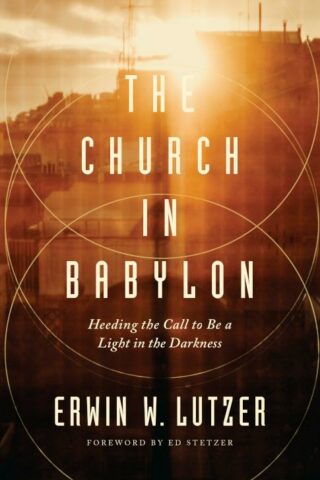Worship In An Age Of Anxiety
$32.00
The history of the theology of worship is riddled with examples of clergy and worship leaders who have sought to manipulate their parishioners’ anxiety in order to spur repentance and turn people toward God. Even if such ends may be desirable-at what cost?
In Worship in an Age of Anxiety, Jordan challenges this utilitarian approach, offering a critical assessment of contemporary as well as historical evangelical figures such as D. L. Moody and Billy Graham who have deployed anxiety as a tool for conversion.
Proposing a completely different model, Jordan takes up various elements of worship, including:
*liturgy
*space
*music
*preaching
*the sacraments
In doing so, he develops a practical theology of worship that also turns people toward God but within a healing framework.
While worship alone cannot heal anxiety, it can be a time and place where, rather than being manipulated, anxiety can be acknowledged, accepted, and offered to God.
in stock within 3-5 days of online purchase
SKU (ISBN): 9781514006108
ISBN10: 1514006103
J. Michael Jordan
Binding: Trade Paper
Published: June 2024
Dynamics Of Christian Worship
Publisher: InterVarsity Press
Print On Demand Product
Related products
-
On Earth As In Heaven
$29.99Today’s leading Bible scholar, Anglican bishop, and acclaimed author N. T. Wright returns with a collection of pastoral excerpts, carefully curated from his widely celebrated books, that will inspire those wanting to cultivate a life “on earth as it is in heaven.”
Modern pastors and their flocks have long considered N. T. Wright a role model for being a thoughtful Christian in today’s world. His bestselling books, including Simply Christian, Surprised by Hope, Simply Jesus, and After You Believe, have guided Christians in their belief and practice of the faith. Now, Christians can rely on his wisdom to guide them through each day of their lives with this thoughtful book of daily meditations, featuring short selections from his classic works.
With reflections on themes such as faith, mission, character, and God’s work in the world, these daily meditations will invigorate and uplift Christians in their search to live their faith authentically and biblically in today’s world.
Add to cart2 in stock
-
I Still Believe Small Group DVD Kit
$39.99The I Still Believe Small Group Kit combines a 5-episode DVD series, 35-day devotional journal, and thorough leader’s guide to serve as a five-week guided tour for small groups through the biblical response to commitment, sacrifice, grief, loss, and also God’s sovereignty and redemption. This kit comes as a ready-to-use package that makes it easy to implement small groups in your church or ministry.
Includes: Video Series, Leader’s Guide, and Study Journal
Add to cartin stock within 3-5 days of online purchase
-
Screwtape Letters
$17.99Wormwood, a demon apprentice, must secure the damnation of a young man who’s just become a Christian. He seeks the advice of an experienced devil, his uncle Screwtape. Their correspondence offers invaluable—and often humorous—insights on temptation, pride, and the ultimate victory of faith over evil forces. Paperback with French flaps and deckled page edges.
Add to cart2 in stock (additional units can be purchased)
















Reviews
There are no reviews yet.